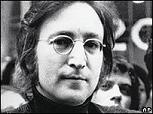For fans of “Crossing Jordan” (a CSI-meets-grown up-Nancy Drew weekly drama), the tantalizing question on Sunday night’s episode was: Who Would Kill a Saint? A woman’s body–wearing a silver cross–is discovered buried in a forest. As the crime-scene photographer leans in to take her photo, he suddenly steps back and makes the sign of the cross. In a surprising revelation, the photographer identifies the dead woman as a member of his church, a woman “touched by God” and possessing the gift of raising the dead to life.
As Jordan Cavanaugh investigates the murder, a motley crew of characters are introduced: (a) A teenage boy who “dies” after being hit by a car and who “comes back to life” 20 days after Isabel prays for him; (b) a Vatican priest with diplomatic immunity who is caught in Isabel’s apartment looking for evidence of sainthood; and (c) an embittered father who questions his faith after his daughter dies.
Despite the religious premise, the writers of the rationale-centered show aimed to please the non-religious audience at the expense of the religious among us. In subtle twists, Isabel’s “gift” and the Vatican priest’s credibility are both chipped away. Crackpot theorist and forensics expert Nigel excitedly explains how the teen boy never really died (due to a combination of flat-fronted car impact and sub-zero weather)–only to discover the boy overhearing his theory and losing faith in Isabel. While the Vatican priest’s investigation is noble, his motives are questioned when he is discovered having “broken” into Isabel’s apartment in the middle of the night and rummaging for evidence in her underwear drawer. Nigel also questions whether the priest killed Isabel in order to make her a legend and propel the Vatican into national news.
While the embittered father’s plotline is the most convincing, his pain most palpable, the discovery of his murderous crime cements the destruction of any religious audience’s credibility. The religious are caricatured and stripped down: A boy of blind faith believes too readily in miracles and loses his faith at the first hint of science, a Vatican priest is questioned as being sneaky and evasive, and a father’s rage is channeled into committing the ultimate sin of murder.
Science is exalted and ultimately overtakes faith, leaving it stale, clichéd, and unbelievable.


